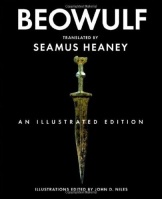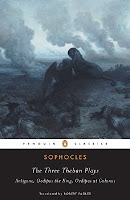Even though I don’t find Christopher Columbus to be a likeable character at all, one thing that I found interesting about this book The Four Voyages was being able to see things from Columbus’ perspective. In high school, we were taught how Spain, Britain and France’s quest for colonization brought down much suffering on the First Nations people who originally lived where the European nations later colonized. In this book, you get to see things from the perspective of the first European who “found” America. And of course, Columbus conveniently omitted how the Indigenous people were actually treated, focusing on how he would convert them into Christians. In fact, he doesn’t seem to show any remorse about the way he was treating the Aboriginals. He talks about how he traded with them, but he calls his business trade. A far better word to call his conduct would be how he cheated the Indigenous people.
Many wars have been waged over religion. The feuds over whose religion was “true” and “better” have existed for centuries and continues to this day. Perhaps this is why I find the topic of religion rather intriguing. I doubt Isabella of Castile would have approved of Columbus’ actions if she knew the extent of the Natives’ suffering. She’s obviously a very religious woman, but religious doesn’t always equate to being a good person. Most of the Europeans in The Four Voyages are so-called devout Christians, devoted to converting the heathens to embracing Christianity. But sometimes you wonder if this conquest for colonization is really about religion, or whether it’s really a quest to make a financial profit. Does religion = quest for riches? Does religion = power and domination? The questions are answered to a certain extent in The Four Voyages.
I think one should take into account that Columbus has a dual personality in this book. One side to Columbus is that he’s a God-loving, religious man. He has no other desire in exploring other than to convert heathens into religious people and devoted to serving the monarchs of Spain. The other side is the selfish Columbus, who wants money and fame. This would be the interweaving of religion and desire for wealth.
And notice how desire for wealth later subsumes religion. Columbus rather reminds me of Kurtz in Joseph Conrad’s Heart of Darkness. He just lacks Kurtz’s epiphany at the end, because I don’t remember him showing any regret or guilt for his actions.




